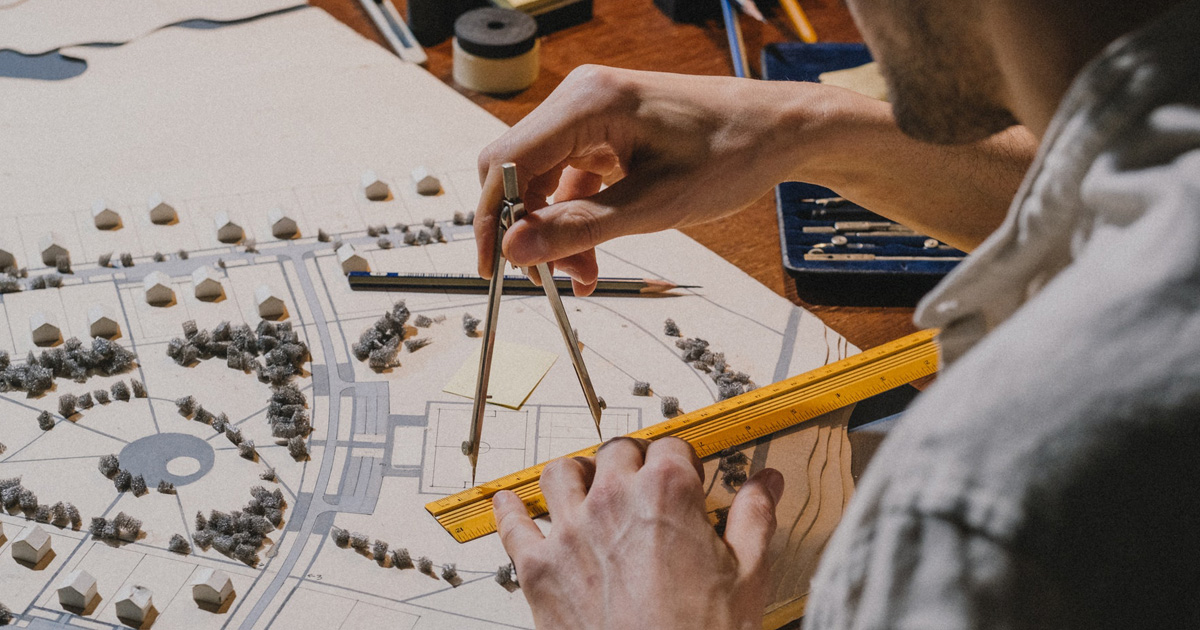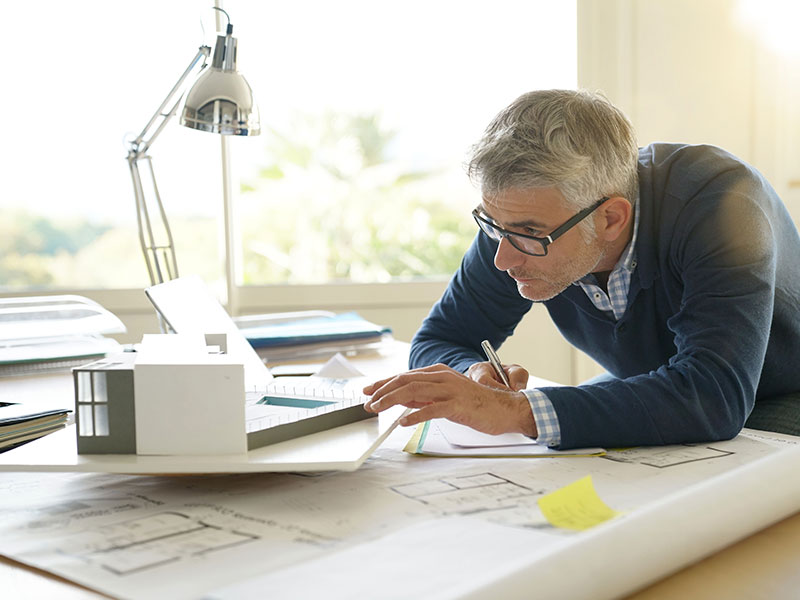Architect Career Path: Skills, Education, and Development Guide
Architect Career Path: Skills, Education, and Development Guide
Blog Article
Discover the Crucial Abilities and Qualities Every Architect Should Possess
As a designer, you understand that success in your field goes beyond simply technological skills. Each top quality plays a crucial role in your capability to design rooms that motivate and work well.
Creativity and Technology
Creative thinking and innovation are at the heart of design, driving the design of areas that influence and work perfectly. You'll continuously check out new products, techniques, and modern technologies to improve your designs.
You'll also draw ideas from various resources-- nature, art, and also everyday life can trigger fresh ideas. This ability to blend imagination with usefulness allows you to deal with complex troubles, ensuring your designs fulfill both visual and practical requirements.
Strong Interaction Skills
While developing impressive rooms needs creativity, strong interaction abilities are equally as crucial for designers. You require to share your ideas plainly to clients, professionals, and staff member. Paying attention is equally as crucial; recognizing your customer's vision aids you create layouts that genuinely meet their needs.
You'll usually have to explain complicated principles in such a way that's very easy to understand, whether you're presenting a proposition or discussing products. Efficient communication cultivates collaboration, making certain everybody gets on the same web page throughout the project.
Structure relationships is necessary, too. When you develop trust fund and rapport, clients are more most likely to share their concerns and responses, resulting in far better end results.
Lastly, don't take too lightly the power of body language and aesthetic help. They can boost your message and make your presentations a lot more engaging. Solid interaction skills not only elevate your layouts but also strengthen your expert relationships in the architectural globe.
Technical Effectiveness in Style Software
As you browse the ever-evolving world of architecture, mastering layout software ends up being important for converting your imaginative concepts into tangible strategies. Familiarizing on your own with programs like AutoCAD, Revit, and SketchUp will not just improve your style capacities however likewise enhance your operations. These tools allow you to create in-depth drawings, 3D designs, and even simulations that can help you imagine and present your principles better.
Consistently updating your skills and exploring new attributes can establish you apart from your peers, ensuring your layouts are specific and cutting-edge. Eventually, technical efficiency in style software is a keystone of successful style, assisting you bring your visions to life.
Comprehending of Design Principles

Understanding engineering principles likewise allows you to anticipate potential difficulties early in the layout procedure. You can make enlightened options that enhance your styles when you're conscious of exactly how different products behave under numerous conditions. Your styles must not only be visually pleasing however lasting and additionally functional.
In addition, a solid grasp of design principles enables you to innovate within constraints. You can push innovative limits while still sticking to safety standards. Ultimately, this understanding enhances your building practice and sets you apart in an affordable area.
Job Management Abilities
Effective task management capabilities are essential for designers, enabling you to supervise all aspects of a task from conception to conclusion. You'll need to coordinate with various stakeholders, including specialists, customers, and engineers, making certain everybody's on the very same web page. Establishing clear goals, timelines, and spending plans is essential; it assists you maintain the job on the right track and within range.
As an architect, you must likewise be experienced in danger administration, identifying possible concerns before they escalate. Strong interaction skills are vital, enabling you to express your vision and motivate your team. You'll take advantage of being arranged and detail-oriented, as this helps improve procedures and stay clear of pricey delays.
Additionally, adaptability is vital; projects commonly progress, and being flexible enables you to react successfully to adjustments. Ultimately, your project management abilities can substantially influence the success of your building endeavors, guaranteeing you supply quality outcomes in a timely manner and within budget plan.
Attention to Detail
While handling projects is vital, your attention to detail can make a substantial difference in the quality of your job. Every line you attract, every product you choose, and every small spec you note adds to the total success of a job. You need to click here for more info be thorough, guaranteeing that your designs not just satisfy aesthetic requirements however also stick to building policies and codes.
This caution not only saves you time and sources but additionally develops your credibility as a reliable Architect. Accept this ability, and allow it direct your design process, making sure that your vision is executed flawlessly.
Flexibility and Problem-Solving Abilities
As a designer, you'll typically deal with unexpected adjustments in design and project demands. Your capacity to embrace these shifts and locate ingenious options is necessary for success. Remaining versatile in your strategy not only improves your analytical skills but also maintains your jobs on track.
Accepting Modification in Layout
Welcoming change in design is vital for architects, especially when steering advancing customer needs and emerging modern technologies. You require to grow adaptability, as jobs commonly move direction based on new understandings or constraints. Being open to alter enables you to check out cutting-edge strategies and produce services that resonate with your customers.
When faced with difficulties, your analytical abilities enter play. You'll commonly require to reconsider ideas and adjust strategies on the fly, making certain that the last outcome lines up with the customer's vision while fulfilling safety and regulatory standards. By being clever and flexible, you not just boost your designs however also build depend on with your clients, confirming that you can navigate the complexities of modern-day design successfully.
Innovative Solutions to Challenges

Adaptability in Job Monitoring
While maneuvering the complexities of job monitoring, versatility comes to be an essential asset for designers. You'll often face unforeseen difficulties, from layout modifications to budget restrictions, needing quick reasoning and adaptability. Embracing adjustment permits you to pivot your methods and discover innovative solutions, ensuring project success.
Strong problem-solving skills are important; they enable you to assess scenarios, evaluate alternatives, and apply reliable services on the fly. When dealing with varied groups, being open to comments and different concepts promotes collaboration and sparks creativity.
Often Asked Questions
What Educational Background Is Needed to Come To Be a Designer?
To come to be a designer, you'll need a minimum of resource a professional level in style, typically a Bachelor's or Master's. Completing a teaching fellowship and acquiring licensure with examinations is vital for your job innovation.
Just How Vital Is Networking in the Style Area?
Networking's necessary in design. It aids you develop relationships, find job opportunities, and gain understandings from skilled specialists. By getting in touch with see here now others, you improve your profession prospects and stay upgraded on sector fads and growths.
What Are the Usual Profession Paths for Architects?
Typical job paths for architects include style roles in companies, project management, urban preparation, and specialized locations like sustainable design. Architect. You may also check out training or consulting, depending on your passions and experiences
How Can Engineers Remain Updated With Sector Patterns?
To remain updated with market patterns, you ought to regularly participate in meetings, sign up with specialist organizations, sign up for appropriate magazines, and involve with on-line forums. Networking with peers also assists you gain understandings right into emerging advancements in style.
What Duty Does Sustainability Play in Modern Design?
Sustainability forms contemporary style by highlighting energy performance, resource conservation, and environmentally friendly materials. You'll create areas that reduce ecological effect, improve occupant health, and reply to climate difficulties, making your styles much more appropriate and impactful.
While developing remarkable areas calls for imagination, strong communication abilities are simply as vital for architects. Solid communication abilities not only raise your designs but likewise strengthen your expert partnerships in the architectural world.
Proficiency in design software application lays the foundation for a much deeper understanding of engineering principles, which is crucial for designers.As a designer, you'll often encounter unexpected modifications in style and job needs.Embracing modification in layout is necessary for designers, especially when steering advancing customer needs and arising modern technologies.
Report this page